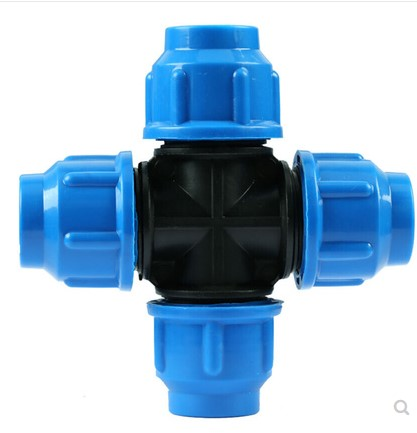Aug . 12, 2024 09:02 Back to list
Comparison of PVC and PPR Pipes for Industrial Applications and Their Manufacturing Process Efficiency
PVC Pipe vs PPR Pipe A Comprehensive Comparison
When it comes to plumbing and construction, choosing the right type of pipe is crucial for ensuring durability, efficiency, and cost-effectiveness. Two popular options in the market today are PVC (Polyvinyl Chloride) pipes and PPR (Polypropylene Random Copolymer) pipes. Both materials have their unique properties, benefits, and downsides, making them suitable for different applications. This article delves into the comparison between these two types of pipes, focusing on their manufacturing processes, properties, and practical applications.
Manufacturing Processes
PVC pipes are manufactured from a polymer called polyvinyl chloride, which is created through a process of polymerization. The raw materials, primarily vinyl chloride monomer, undergo chemical reactions to form polyvinyl chloride resin. This resin is then mixed with additives to improve its properties, such as flexibility, strength, and resistance to weathering. The resulting compound is extruded into pipes of various sizes.
In contrast, PPR pipes are made from polypropylene, a thermoplastic polymer produced through a polymerization process similar to PVC. Polypropylene is known for its excellent chemical resistance, high melting point, and durability. To manufacture PPR pipes, polypropylene resin is processed under high heat and pressure, resulting in a solid pipe material that can withstand substantial stress.
Properties
When comparing PVC and PPR pipes, several key properties come into play. PVC pipes are lightweight, relatively affordable, and resistant to corrosion. They can handle a wide range of temperatures and are ideal for plumbing applications, drainage systems, and electrical conduits. However, PVC is sensitive to temperature extremes, making it less suitable for hot water applications.
pvc pipe vs ppr pipe factory

On the other hand, PPR pipes excel in high-temperature scenarios, withstanding temperatures up to 95°C (203°F). They possess a high degree of chemical resistance and do not emit harmful substances, making them safe for potable water applications. PPR pipes also exhibit excellent thermal insulation properties, reducing heat loss in hot water systems.
Practical Applications
The application of PVC pipes is vast and includes residential plumbing, irrigation systems, and industrial applications. Their affordability and ease of installation make them a popular choice for contractors and DIY enthusiasts alike. However, due to their limitations with high temperatures, PVC pipes are not recommended for hot water distribution systems.
PPR pipes, on the other hand, are favored for their durability and versatility. They are commonly used in hot and cold water plumbing systems, heating installations, and even in industrial applications where chemical resistance is paramount. The seamless jointing method of PPR pipes minimizes leaks and enhances the overall efficiency of plumbing systems, making them a preferred option for modern construction projects.
Conclusion
In summary, both PVC pipes and PPR pipes serve essential roles in plumbing and construction. PVC pipes are advantageous for their affordability and ease of use, making them suitable for various non-hot water applications. Conversely, PPR pipes are superior when it comes to high-temperature resistance and safety for potable water systems. Ultimately, the choice between PVC and PPR pipes depends on the specific requirements of your project, including the nature of the fluids being transported, temperature ranges, and budget constraints. For long-lasting and reliable plumbing solutions, understanding these differences is imperative for making an informed decision.
-
Durable DN100 PVC Well Casing Pipes for Reliable Water Supply
NewsAug.16,2025
-
HORON 25mm PPR Plumbing Pipes: Durable, Leak-Proof Water Systems
NewsAug.15,2025
-
Durable UPVC Column Pipes for Submersible Pumps | Efficient Water Flow
NewsAug.14,2025
-
DN100 PVC Well Casing Pipes - Durable & Corrosion-Resistant
NewsAug.13,2025
-
Flexible 32mm HDPE Pipes in Coil | Durable Water & Gas Lines
NewsAug.12,2025
-
DN50 HDPE Pipes in Coils: Flexible, Durable & Easy Install
NewsAug.11,2025

